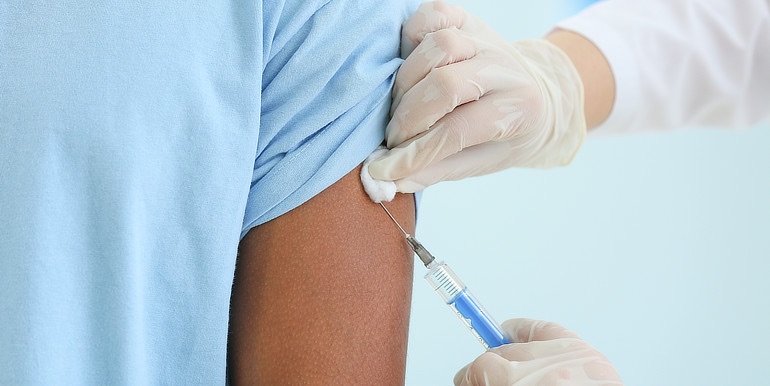Reasons to get vaccinated against HPV
12. 07. 2018 | Committee on Healthcare from the Chamber of Deputies of the Parliament of the Czech Republic
As in most developed European countries, a vaccination programme against HPV has also been introduced in the Czech Republic. HPV vaccines are reimbursed from the public health insurance if the first dose is administered between ages 13 and 14. Both girls and boys can be vaccinated under this scheme. It has been repeatedly proved that vaccinating girls and boys against human papillomavirus (HPV) prevents the development of several serious cancers and protects human lives.

Image credit: depositphotos.com
In the spectrum of current options for cancer control, HPV vaccination actually presents a groundbreaking and unique way of preventing many serious cancers such as cervical, vulvar, anal, penile or vaginal cancer, but also oropharyngeal cancers. Approximately 150 types of HPV have been described so far, out of which about 40 affect the genital area; HPV is therefore considered to be most common sexually transmitted infection worldwide. The currently available vaccination provides a protection against the human papillomavirus, thus representing a highly effective prevention tool, which addresses the very cause of cancer development.
In the Czech population, this health issue has serious consequences on cancer epidemiology, as confirmed by the latest statistics on HPV-positive cancers, which show a steadily growing trend. In the Czech Republic, the annual incidence of HPV-associated cancers is up to 2,440 new cases (out of which almost 900 are diagnosed in men) and the prevalence (i.e. the number of persons living with the disease or its history) is more than 27,500 persons (out of which 4,900 are men). With the exception of cervical cancer, where the ongoing screening programme has contributed to a decrease in incidence, the number of HPV-positive cancer cases has been growing by 3–5% each year and, moreover, the condition also affects relatively young people. These increases in incidence have been reported in the age category as young as 30–35 years.
As for girls, HPV vaccination has been reimbursed since the 1 April 2012. The vaccination programme was extended in August 2017 to cover boys as well (by Draft Amendment to Act No. 290/2017 Coll.). The above-mentioned age interval applies to both sexes, effective from 1 January 2018.
The press conference will sum up the availability of HPV vaccination in the Czech Republic and present the latest data on HPV vaccination coverage. The analysis of data on HPV vaccination that was reimbursed from the public health insurance shows that the HPV vaccination coverage in girls aged 13–14 reached 65% in 2017; however, considerably different rates have been reported for individual regions of the Czech Republic, ranging from 50% to 80%. The latest available data, which cover the period 2016–2017, do not allow to quantify the HPV vaccination coverage in boys, who were included in the existing vaccination scheme (i.e. reimbursed from the public health insurance) only in January 2018. In the period 2016–2017, HPV vaccination was only reimbursed for dozens of boys aged 13–14. Data on HPV vaccination paid by clients themselves are not available and the latest population-wide estimate of HPV vaccination coverage in girls aged 13–14 is therefore partially biased. However, even this estimate shows that there is still much space for improvement in this prevention effort. For this reason, it is certainly worthwhile to inform citizens on the benefits of HPV vaccination, which should ideally lead to an increase in the participation rate in the programme of reimbursed HPV vaccination.
Presentations available for download
- Annex No. 1 – Availability of HPV vaccination in the Czech Republic and in international comparison (
 PDF file, 206 kB)
PDF file, 206 kB) - Annex No. 2 – Latest available data on HPV vaccination coverage of the Czech population (
 PDF file, 786 kB)
PDF file, 786 kB) - Annex No. 3 – Epidemiology of HPV-related cancers in the Czech population (
 PDF file, 1.7 MB)
PDF file, 1.7 MB)
Keywords: human papillomavirus (HPV), vaccination coverage, HPV vaccine, HPV-related cancers